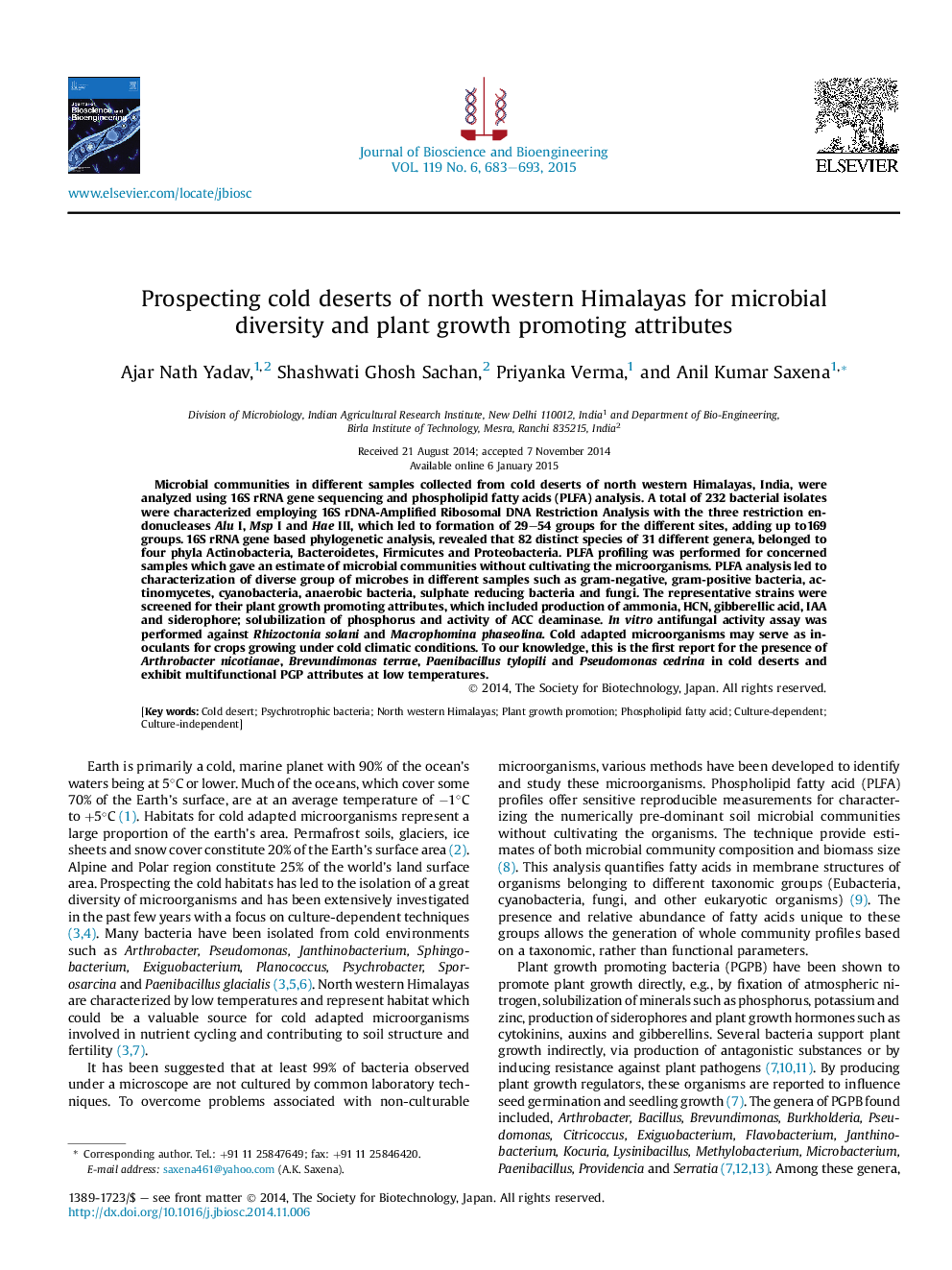| Article ID | Journal | Published Year | Pages | File Type |
|---|---|---|---|---|
| 20332 | Journal of Bioscience and Bioengineering | 2015 | 11 Pages |
Microbial communities in different samples collected from cold deserts of north western Himalayas, India, were analyzed using 16S rRNA gene sequencing and phospholipid fatty acids (PLFA) analysis. A total of 232 bacterial isolates were characterized employing 16S rDNA-Amplified Ribosomal DNA Restriction Analysis with the three restriction endonucleases Alu I, Msp I and Hae III, which led to formation of 29–54 groups for the different sites, adding up to169 groups. 16S rRNA gene based phylogenetic analysis, revealed that 82 distinct species of 31 different genera, belonged to four phyla Actinobacteria, Bacteroidetes, Firmicutes and Proteobacteria. PLFA profiling was performed for concerned samples which gave an estimate of microbial communities without cultivating the microorganisms. PLFA analysis led to characterization of diverse group of microbes in different samples such as gram-negative, gram-positive bacteria, actinomycetes, cyanobacteria, anaerobic bacteria, sulphate reducing bacteria and fungi. The representative strains were screened for their plant growth promoting attributes, which included production of ammonia, HCN, gibberellic acid, IAA and siderophore; solubilization of phosphorus and activity of ACC deaminase. In vitro antifungal activity assay was performed against Rhizoctonia solani and Macrophomina phaseolina. Cold adapted microorganisms may serve as inoculants for crops growing under cold climatic conditions. To our knowledge, this is the first report for the presence of Arthrobacter nicotianae, Brevundimonas terrae, Paenibacillus tylopili and Pseudomonas cedrina in cold deserts and exhibit multifunctional PGP attributes at low temperatures.
